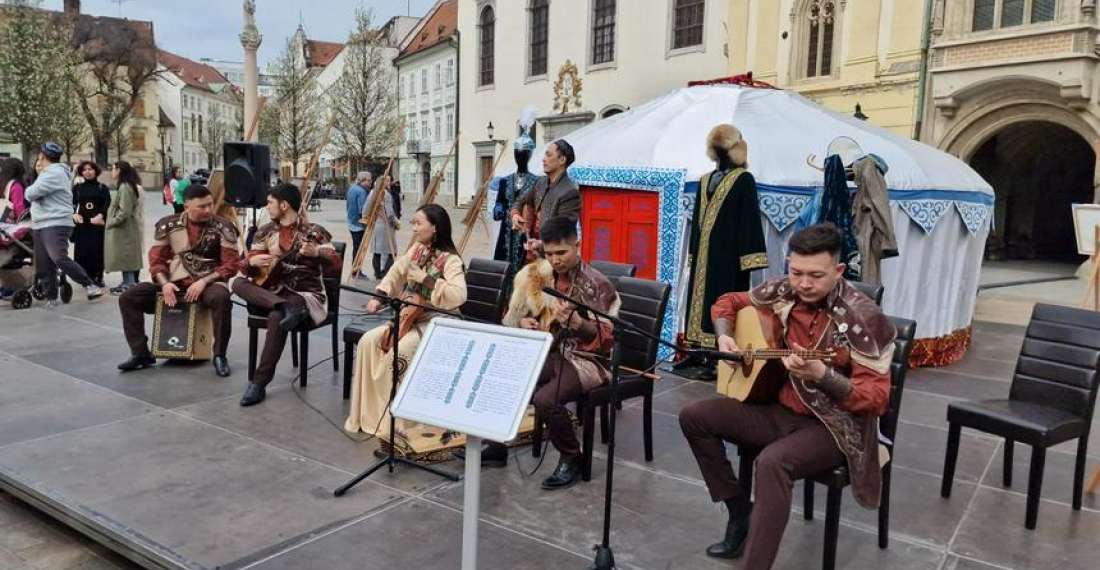A traditional Kazakh yurt has been erected in the Slovak capital of Bratislava to celebrate the springtime festival of Nauryz. The installation was organised by the Embassy of Kazakhstan and supported by city authorities, reports Kazinform.
The traditional dwelling of Kazakhs and a national symbol of Kazakhstan, the yurt has recently become increasingly associated with peace, harmony, and solidarity after a number of "Yurts of Invincibility" were installed across Ukraine.
In Bratislava, the interior of the yurt was decorated with Kazakh national costumes, painted leather panels, carpets, ribbons, musical instruments, nomadic armor and a traditional Kazakh whip called a "kamcha".
Opening the exhibition, the Kazakh Ambassador to Slovakia Tolezhan Barlybayev spoke about the importance of the yurt, which is a symbol of the hearth and the continuation of the family.
The cultural event on Bratislava's main square also included an art workshop with students from the Ladon Bratislava School of Arts, the works from which will form the basis of the permanent exhibition "Kazakhstan through the eyes of Slovak children".
This year will see the ethnographic exhibition travel around various regions of Slovakia.
source: commonspace.eu with Kazinform
photo: Kazinform







